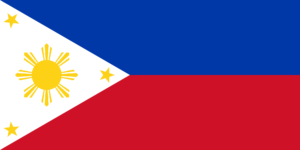Country Snapshot: Philippines

Human resources for health form the foundation of an efficient and reliable health system. In the Philippines, only 10 percent of the country’s health workers serve in rural areas, leaving some municipalities without an adequate health workforce. While local government units are responsible for delivering quality health care services, oftentimes, their ability to efficiently plan for, manage, and develop the health workforce is insufficient, resulting in inequities in health services and outcomes.
With the 2019 passing of the Universal Health Care Act, the Philippines turned their focus to increasing investments in effectively managing and developing the health workforce to meet the country’s family planning, maternal and child health, and tuberculous (TB) goals.
HRH2030 in the Philippines
From October 2017 through June 2020, USAID’s HRH2030 program in the Philippines supported the Philippines Department of Health (DOH) to strengthen recruitment, deployment, development, retention, and performance management of the health workforce to improve access to quality TB, family planning, and maternal and child health services for vulnerable populations. The program’s legacy achievements include:
- The DOH is using an evidence-based approach to develop new staffing standards for improved delivery of primary health care.
- A sustainability roadmap is in place to help the DOH prepare for transition of Global Fund-supported HRH for TB.
- Health workers have better opportunities to enhance their professional competencies through a new online learning platform.
- The DOH is on track to adopt National Health Workforce Accounts (NHWA) for improved availability, quality, and use of data to inform policy and manage the health workforce.
- A new National HRH Master Plan sets the stage for HRH improvements for UHC over the next two decades.
Related News & Resources
Celebrating HRH2030 Philippines: Key Achievements in Advancing Human Resources for Health
As a strategic development partner to the Philippines Department of Health, USAID supports the DOH’s goal of having an adequate number and type of human resources for health, with the competencies and skills necessary to deliver Universal Health Care.
Final Report: HRH2030 in the Philippines
In the Philippines, HRH2030 supported the Philippines Department of Health to strengthen recruitment, deployment, development, retention, and performance management of the health workforce to improve access to quality tuberculosis, family planning , and maternal and child health services for vulnerable populations.
The Power of Perseverance: A TB Patient’s Journey to Health
It is a typical warm Tuesday morning in the densely populated Tondo, Manila, as Bernard makes his way to the Canossa Health and Social Center, a faith-based facility renowned for its distinctive, holistic approach to care.






 Philippines
Philippines